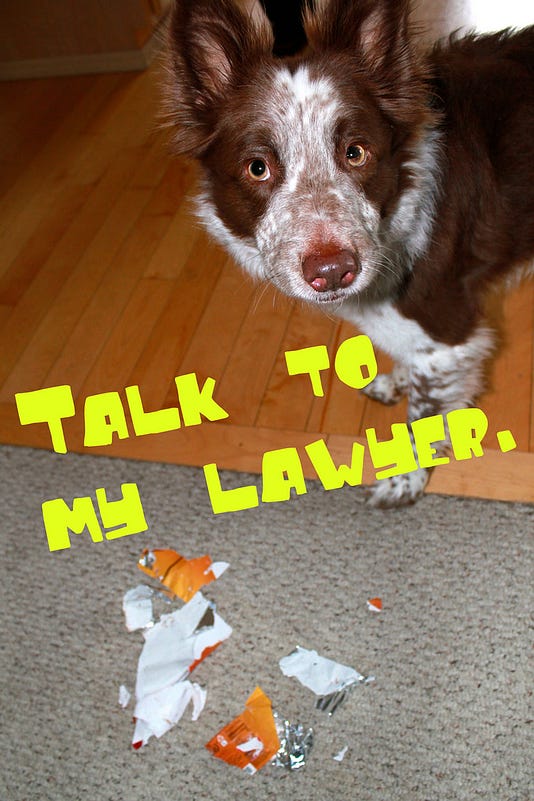AMERICAN CANNABIS TAXED LIKE CRIMINALS
In 2017 US cannabis companies must factor in the impact of a US federal government that is downright 420 unfriendly.
The buzz-kills at the federal level have authority to put you in jail, summarily seize personal and business assets for forfeiture, and tax your marijuana business out of existence.
Cannabis is federally illegal in the US and the party will end when marijuana companies get pinched on April 15. Bless you for trying to bring medicine to the people, but this is no joke.
The feds have mad tools to tax the American cannabis industry into the ground, and it appears that is what they plan to do.
 |
| Cannabis businesses forsaken like the hairs in the back of the triple comb-over.. Photo by BostonJerrycaption |
I am individual investor who plays on the high risk penny stock playground. I make small, speculative purchases of high-risk micro cap stocks that show signs of value and growth. Then I write about it. This is called the McKenzie Research Roth IRA.
(I also have a conservatively invested 401K with a different brokerage. That’s called the McKenzie Future Food Fund.)
Little companies beget bigger companies.
My investments in the Research Fund are in sums that one might ordinarily blow on dinner and movie. Fifty or $60. Sometimes I make buys so small that they wouldn’t cover a haircut (plus the $10 trade fee as a tip).
With the funds I use for the investments discussed here, I am for all intents and purposes a Crazy Hippy From Oregon. So let’s talk about cannabis. I have been following the international hemp and cannabis industry take shape for years, and I have had small investments in the international hemp and cannabis industries since 2015. This is what I do for fun.
THE WAR ON DRUGS CONTINUES
Make no mistake, the US federal government is still at war against drugs. So let’s look at what they can do to you.
These taxes are intended to discourage you from engaging in trafficking in illegal substances such as marijuana.
If you look up articles for US IRS section 280(e) you will find the problem explained in tax accountant terminology. This is more of a plain words discussion with some thoughts on how the US federal government will potentially stop the US cannabis market.
 |
| DEA agents at a surprise party. |
Just Say No Becomes Where’s the Money
US federal agencies have spent decades discouraging trade in illegal, controlled substances throughout the US and the world. These powers were intended to apprehend and punish illegal drug dealers as well as make trafficking in controlled substances as unprofitable as it is illegal.
 |
| A photo of a juicy pot plant lifted by screen shot from Wikipedia and used here under a attribution-sharealike creative commons attribution license. https://creativecommons.org/licenses/by-sa/3.0/ |
Sudden Death by Taxes
All the tools the feds need to effectively stop cannabis in its financial tracks are set contained in the United States federal tax code.
If you are a cannabis business, particularly one that touches the plant, special, punitive tax rules to your company. They treat you badly, as if you were trafficking in endangered species antlers or something.. Basically you get the same tax treatment that is afforded convicted meth, cocaine and heroin dealers.
The IRS tax rules here were created as a form of financial punishment for drug dealers and crooks. Dope slingers and mobsters have to pay taxes if they get caught. These regulations were crafted to make illegal activities unprofitable.
And the joke is on you. If you are relying on state-level cannabis legality to legitimize your pot business, it’s hasn’t happened and the state doesn’t have authority to do it. Cannabis will need a Federal Act of Congress to become legal and that is a long way off. The feds are simply biding their time for now.
State legalization of cannabis doesn’t accomplish what it sets out to do. It creates an environment where normal people feel more comfortable about breaking the law, but it does not change the fact that federal laws are being broken.
Trap for the Ill-advised and Unwary
With the feds waiting until April 15 rolls around, legalized states are excited right now to regulate the hell out of pot, tax it to the max and start yelling, “Bingo.”
The feds must await word from Trump Tower. Obama didn't want to deal with it. But on a federal level there are folks like Newt Gingrich and others who might believe it is their moral and ethical responsibility to take it back away from you. In the meantime state legalization has become a modern tax trap that starts at the state level and ends at the federal level.
However it may seem, the states are not legitimizing your businesses, not one degree. They are helping you keep extensive records that the feds will use later to ruin you. So, while the states stand back and count their millions, marijuana business owners will be paying up voluntarily or fearing an audit, and the IRS has jurisdiction to audit for the past 10 years.
Did you write receipts for all those cash transactions?
We are at a unique point in history we have international players within the United States who are opening selling federally illegal controlled substances to the general public. We have many US-based businesses that are in the same boat, acting in defiance of the United States government.
Banks refuse to work with cannabis businesses so they operate in cash. It is difficult to obtain financing or working capital for an illegal business, so these businesses have good numbers of small, self-funded private enterprises. Some of these businesses have operated in cash for years.
The fact that cannabis is federally illegal gives the IRS every tool they need to quickly take the fun out of the industry. The feds will do this on April 15, 2017, and they will do it again every year thereafter until there is no more tax to collect. Then they can spend the rest of the year doing audits.
Doubters and objectors can wait and see, but as 2016 taxes come due many canna-businesses will see the writing on the wall and quit or go broke. If you can’t fight city hall, why do you want to antagonize a Goliath like the United States Federal Government?
The Feds Will Not Fix This
It will take an act of congress to change this situation. Literally. The problem is that it will not happen soon.
As 2017 turns into 2018, rational American cultivators and dispensaries will find that there is no choice but to go out of business, sooner rather than later. If logic comes into play, fewer people will thereafter be willing to grow or sell marijuana "legitimately" because there's no money in it.
As the Trump Administration takes over Washington, D.C., they will not see a problematic situation that needs to be fixed. They will see a tax situation that will fix itself and pay dividends.
They probably don’t intend to arrest and prosecute all the small operators, but Donald Trump and Jeff Sessions are not going to call in the cavalry to rescue anyone.
The State’s Two-faced Game
The state takes the first bite out of a dispensary business, typically a percentage applied to all sales at a dispensary. The state tosses out a number, whatever they eventually come up with. The dispensary then collects this state tax from its customers as a direct percentage on all marijuana sales.
The current state cannabis tax rate on sales in Oregon dispensaries is 17%. Colorado cannabis taxes run about 13%, combining a 10% cannabis tax with a state 2.9% sales tax. Washington state initially charged cannabis taxes through a three-tiered scheme where the grower, processor and dispensary were each taxed 25%, however Washington state changed this format in 2015, replacing the three-tiers with a somewhat less punitive, point of sale tax of 37%.
This creates big, new money for the states and they love it. Now they can fix roads and build schools and prisons. They love it so much that they don’t care that you are violating federal law. They also don’t care a rip that they are setting you up so that the feds can eat you alive.
Through licensing and regulation, states are formulating a model system where dispensaries are the de facto state tax collectors. Gee, aren't the people from the state friendly?
Presenting yourself as a cannabis business to state officials essentially has the added impact of outing yourself to the feds, who will treat you on tax day as if you are a dope dealer pushing dime bags on the street AND got caught by the feds.
Basically, the state is going to make you do everything by the book, so that you pay the full amount of taxes they have imposed. This will give the feds all the information they need to tax the rest of it away from you.
State taxes are nothing. Fed taxes are the shakedown.
Limited Tax Deductions, Higher Effective Federal Tax Rates
The problem is that cannabis businesses are not allowed the full slate of tax deductions that normal businesses are allowed.
Even convicted drug dealers are afforded some IRS approved tax deductions, but the result is still a tax based on a number that more closely resembles revenues rather than income.
For example, if a cocaine dealer paid $10,000 for product and sold that product for $20,000, he would realize a taxable profit of $10,000 if he could prove that he paid the $10,000 purchase price. If he can’t provide proof of the cost of goods, the IRS might assess the full $20,000 as income.
A legal business with normal accounting practices can deduct transportation costs, telephone, labor, insurance, rent, utilities, internet and professional services and most other costs of goods. But even normal, well operated business sometimes fail to make money.
Deductions decrease reported income and increase profitability. But these deductions are generally disallowed for businesses that produce or sell illegal substances such as marijuana.
Cannabis Crunch
In a rational scenario these tax ramifications would have quashed industry growth three years ago. But people hold onto this dream, wanting to create value out of their efforts, holding out for better times ahead. Some would like to go back to 2014 cannabis market spike and ride to the sky again and sell more stock in the meantime or for a while longer.
In 2016 when Terra Tech (OTCMKTS:TRTC), an American cannabis company, acquired a privately held cannabis dispensary called Blum Oakland. SEC filings showed how Blum’s financials suffered year over year from an excessively high effective federal tax rate. Commentators seemed surprised by Blum’s tax bills and poor results, especially considering the fact that the dispensary had done over $10 million in sales for the past two years.
All American marijuana cultivators who follow IRS tax directives will have this same surprise on their balance sheet. There is no amount of hard work, originality, diligence or cost-cutting measures that can overcome the IRS. The only absolute solution to this problem is to not conduct a US-based cannabis business in the first place.
When in Doubt, Speak no Evil
A publicly-traded Oregon-based dispensary company, Kaya Holdings Inc. (OTCMKTS: KAYS) stated in a recent financial filing that it budgeted zero for deferred tax liability. A statement within the filing was to the effect that the company would recognize tax liability once it was assessed or imposed. KAYS financials read as if there will be no federal taxes, which creates an exceptionally cheerful outlook for a business with a potentially catastrophic tax problem. A recent press release announced that KAYS revenues had gone up hundreds of percentage points. Investors beware, because by all appearances it seems the company has decided to gloss over some very serious federal tax issues. (The author of this article must disclose that he has previously owned shares in KAYS, but sold his position prior to writing this article. The author must also state that he will buy and sell several stocks in this sector in 2017.)
Survive April 15 Before You Party on 4/20
KAYS is somewhat unique further in that they are vertically integrated -- they grow marijuana in their wholly owned facilities and sell it in their wholly owned dispensaries. Vertical integration might be bad news for KAYS’ shareholders, because the company specializes in the two aspects of the cannabis industry that will face the worst possible tax implications.
The long-term picture may get dire, so maybe they don’t want to talk about it, but the problems remains.
Make no mistake, the feds are in the background, and the executives at KAYS are aware of the the issue. Still, the problems discussed in this article could get ugly as federal taxes may put many owners and operators of cannabis businesses out of business with huge tax bills. You had better believe that the feds are interested in a company that has four dispensaries with its own grows to supply it.
Small, privately owned operations may see years of hard work and dreams destroyed by federal action or inaction. Either way, it is an untenable business predicament.
Real Estate Holding Companies and the Tax Burden Shift
The industry has started to react to these tax implications. A popular idea idea is to operate in an ancillary area of the industry, thereby separating your business one degree from the grows and dispensaries.
Real estate holding companies are popular because they do this, effectively shifting the burden of the taxes away from the property owner and onto a third-party tenant. The holding company can act as a landlord, operating in a way that is for tax purposes not a cannabis-related business. These holding companies are ready to assist tenants in obtaining licenses, making connections between growers and dispensaries, for advice on growing, marketing, packaging and branding. But the holding company doesn’t grow, sell or process cannabis, their tenants do and the tenant therefore bears the full brunt of state and federal taxes on the marijuana.
Whereas one might initially be thankful for a sympathetic landlord and a place to grow or sell cannabis, it would appear that the holding company is the only potential long-term play here. They will probably hold onto the real estate at the end of the day, although flagrant law violators or money launderers could face seizure or forfeiture of their property under state or federal law.
Tenant growers and dispensaries will run up huge tax bills and go out of business. Then new tenants can be found who will run up huge tax bills and go out of business. In effect, these holding companies are ideally positioned as revolving doors for people to pay rent first and pay taxes later.
It has become common in the cannabis industry for companies to advertise the fact that their business does not produce, sell or process marijuana or cannabis in any form. Instead, they only rent real estate and provide goods, services and advice to businesses that are actively engaged in federally illegal activities. They will do anything but grow and sell the weed.
An example of this holding-company business format was demonstrated by the Initial Public Offering of Innovative Industrial Products (IIPR) in 2016. Soon after the IPO was done IIPR purchased real estate in New York from Pharmacann LLC, a Canadian company doing business in the US. After the purchase, the property was subsequently leased back to Pharmacann. The transaction involved an already built $30 million, 127,000 square foot cannabis cultivation and processing center. It remains to be seen whether Pharmacann will grow cannabis there or lease the facility as a landlord.
These arrangements are advantageous to the cannabis company, as they retain capital that would have been used to purchase real estate. Thus cannabis companies in America can focus their financial resources on growth, sales and production, branding and other activities that will lead to unpayable levels of taxation.
That is the reality of this marketplace. This is what is happening. This is why the industry will not survive.
The Picks and Shovels Analysis Survives, Sort of … for a While
The only businesses in the American cannabis sector might show short term profitability are businesses that provide services, tools and supplies, and short-term financing to the industry.
Investors intent on investing in this sector should look to cannabis testing laboratories, lighting and fertilizer suppliers, and real estate holding companies if they must invest in America. Cannabis businesses are not going to disappear over night, well at least not all of them.
But the tax problems discussed here will ultimately impact American suppliers of “picks and shovels” as rational demand for these products should decrease as, in time, fewer people will be willing to accept the risk of absolute financial ruin at the hand of the federal government.
As it stands today, there is no future for the industry. The core businesses -- growing and selling -- is challenged to survive. It is stupid to play their game, and it ends badly. There is no good scenario other than, potentially a non-profit or a purely medical cannabis business until federal legality is a reality.
As it stands now, a street dealer stands a better chance of surviving the next two years in the cannabis industry. All a street dealer has to worry about is getting caught, state licensed cannabis grows and dispensaries have already turned themselves in for the right to play an expensive game.
The Big Players are Waiting in the Wings
Federal legality is exactly the reason why big players have stayed away.
Big American tobacco has not entered the cannabis industry, because it is not yet a stable, profitable market. Corporate execs know, and their businesses live or die by, the tax code. Very few legitimate companies with seasoned leadership will enter this market until it is fully federally legal.
Once full federal legalization is granted, additional American companies will jump into the market and fiercely compete with any then-existing, tax-bloated small players. That’s years away.
Go Outside
The best potential investments in the cannabis industry are foreign companies that do not have significant cannabis grow or sell interests in America.
Outside the US, governments are beginning to accept cannabis as medicine and as a legitimate industry that can create jobs and prosperity. In Canada medical marijuana is federally legal and they are moving toward recreational use legality for persons aged 18 and over. Medical marijuana is legal in Uruguay, Puerto Rico, Colombia and Israel, and it is gaining ground in Germany and other parts of Europe and the world.
Foreign countries are gearing up for medical cannabis tourism.
Many cannabis companies doing business outside of the US show promise as investments.
For example, following Canada’s Licensed Producer program tends to spotlight companies with good chances for success. Medical cannabis is legal in Canada and they working towards recreational use.
Federal Inaction and Industry Stagnation
Asking for help from the Trump Administration is laughable. Full legalization of cannabis in the US isn’t going to happen bigly or any time soon.
In the short term US citizens and businesses must be disavowed of the notion that US cannabis business are lucrative vehicles that lead to quick riches. While great risk does at times bring great rewards, the risks for US growers and sellers of cannabis are severe, nearly certain and certainly devastating.
CONCLUSION
American cannabis businesses face hard opposition at the federal level. Cultivator and dispensary businesses are subject to severe and business-threatening tax implications.
State experiments in legalizing cannabis do not give businesses the protection or certainty they need to survive. True cannabis legalization in America will occur only after the industry is federally accepted and federally regulated with minimum standards set by the US federal government.
State legalization provides a false sense of security and may entice people to engage in criminal activity that will bring federal scrutiny.
While state-level voting has showed that a portion of the American population favors cannabis legality in some forms, state measures do little else other than collect taxes, set minimum health standards, and set the table for the feds to come tax and tax the industry out of existence.
Cannabis is still illegal in America.
Mike McKenzie
© 2016 McKenzie News and Research, a subsidiary of HD News and Entertainment.
The author of this article is an individual US investor, who began studying and monitoring US-based, publicly traded cannabis companies shortly after individual states began to attempt cannabis-legalization experiments. This is the author’s own work, and the author was not compensated in any way for this research report. Where applicable the author has indicated any current or past ownership of stocks directly discussed in this article.
The opinions expressed in this article are the opinions of the author only and should not be considered investment advice nor an invitation or call to action to buy, sell or trade securities of any form. The author holds no educational degrees or professional certifications in personal finance or business, nor does the author have significant business experience in the subject-areas under discussion.
McKenzie News and Research engages in independent research and news reporting, specializing in under-analyzed small cap US and foreign-based companies operating in the US, including publicly traded cannabis stocks of the US and elsewhere. Nothing herein limits, prohibits or restricts McKenzie News from future purchases, sales or retention of the publicly traded stocks whether or not such stocks are analyzed, discussed or mentioned.
McKenzie News is an educational resource intended to assist individual investors. Investors should note that many of the stocks mentioned are small cap stocks, subject to tremendous volatility and rapidly evolving market conditions. Investors in these issues may incur partial to total losses in the subject equities Investors should perform their own due diligence before purchasing any investment of any type.
McKenzie News and Research seeks out particularly dynamic, disruptive small companies for discussion. Typically the companies featured or discussed in McKenzie News reports receive little, if any, news coverage or public analysis because they are very small, exploratory or development-stage businesses. Such businesses are typically considered by professional investment advisors and analysts as too speculative, risky or volatile to be purchased or held as investment-grade securities.
Buyer beware.
McKenzie Research Reports is a subsidiary of Hippy Dippy Entertainment. Originally founded as Blue Dog Enterprises in 2002, HD Entertainment operates as multi-channel media and entertainment company in the US, focusing on videography, research writing, and music publishing.
For more information: http://www.youtube.com/jimmyjumpnjive













